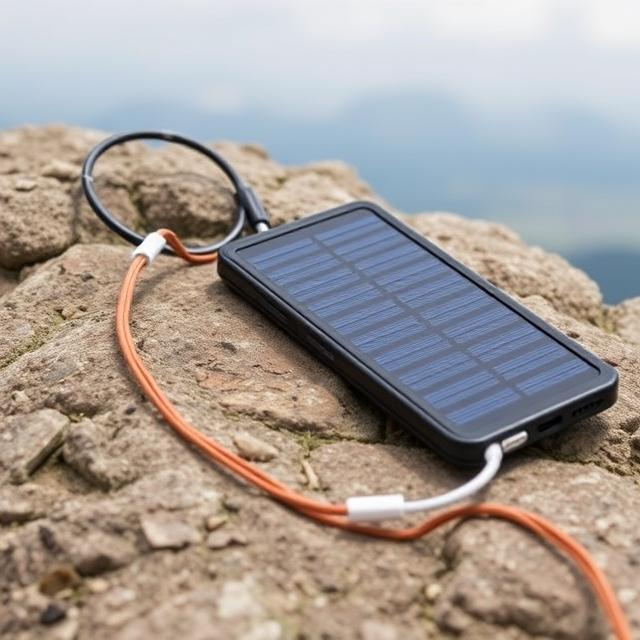Your basket is currently empty!

When you’re deep in the backcountry, your phone is your GPS, camera, journal, and emergency beacon. But how do you keep it charged? Enter: solar panels. But are they worth it?
Pros of Solar Chargers
- Unlimited energy (as long as there’s sun)
- Lightweight options available (like Goal Zero Nomad 5)
- Eco-friendly — charge your gear sustainably
Cons
- Weather-dependent — cloudy days = slow or no charge
- Slow charge times — most panels need hours of direct sun
- Less effective in forested or alpine zones
Top Solar Chargers for 2025
- Nitecore FSP100: Ultralight and powerful, folds flat, great for basecamp use.
- Anker 24W Solar Charger: Dual USB output, solid for multi-day hikes.
- Goal Zero Nomad 10/20: Trusted brand, rugged, modular system.
When They’re Worth It
- Long expeditions with no access to outlets
- Basecamps or multi-day layovers
- Sunny environments (deserts, tropics, alpine zones)
Better Alternative for Most Trips?
A 10,000–20,000 mAh battery bank may be more reliable for shorter hikes or trips under 5–7 days. Combine both for max flexibility.
Verdict: Solar panels are worth it for longer, sunnier trips — but only if you know how to use them efficiently. If you’re chasing shade or hiking under cloud cover, go with a battery bank instead.
Leave a Reply